Hey there! If you’re here, you’re possibly wondering whether there’s a syrup obtainable which can assist with COVID-19. Maybe you’ve got a cough that received’t end, otherwise you’re just curious approximately what’s secure to take. I get it—while my pal Leilani caught COVID-19 remaining yr, she changed into determined to feel higher. She stood in her kitchen, staring at a bottle of cough syrup, questioning, “Is this okay to use, or may want to it make matters worse?” It’s a query loads of us have requested, and simply, it’s a clever one. So, let’s dive into the sector of syrups and COVID-19 collectively and determine out what’s reality, what’s fiction, and what you want to recognise to stay safe.
Right off the bat, let’s clear something up: no syrup is going to cure COVID-19 or stop it in its tracks. That’s not how it works. But some syrups might help ease symptoms like that annoying cough, while others—well, they might not be your best bet. There’s even some research floating around about herbal options that sound promising. So, take hold of a cup of tea (or something you’re sipping on), and permit’s spoil all of it down in a way that’s easy to digest.
What Are We Talking About When We Say “Syrups”?

Okay, permit’s begin with the fundamentals. When we communicate approximately “covid syrup” or syrups in wellknown, we’re commonly referring to two major kinds: the over-the-counter cough syrups you find at the pharmacy and natural syrups that from time to time pop up in conversations about natural treatments. Cough syrups are the ones thick, candy liquids designed to coat your throat or quiet a cough, even as herbal syrups may claim to enhance your immune machine or fight viruses. But here’s the issue—COVID-19 isn’t your average bloodless, so we want to look at these alternatives with a vital eye.
The Role of Syrups in Everyday Life
Normally, syrups are a cross-to for turning in medicinal drug in a manner that’s smooth to swallow—assume youngsters who hate capsules or adults who just need something soothing. For colds or flu, they may be a lifesaver for calming a scratchy throat or supporting you sleep thru a coughing match. But COVID-19? That’s an entire exceptional beast. The virus can hit your lungs, your energy, even your experience of taste, and now not every syrup is prepared to handle that.
Why the Hype Around Syrups and COVID-19?
Back whilst the pandemic commenced, people have been greedy at straws—some thing that could help. Rumors spread rapid, and suddenly, every body became speakme about domestic treatments, which include syrups. Some parents even puzzled if their trusty cough syrup should double as a COVID-19 fighter. Spoiler alert: it is able to’t. But that hasn’t stopped the curiosity, and it’s why we’re right here to kind through the noise.
Cough Syrups: Friend or Foe During COVID-19?
Imagine a scenario: You are infected with COVID-19, your throat is sore, and you’re coughing non-stop. You shuffle to the medicine cabinet and capture that acquainted bottle of cough syrup. It’s tempting, right? But earlier than you are taking a swig, permit’s speak approximately what’s inner and whether it’s a good idea.
What’s in That Bottle?
Most cough syrups have a few key elements. Dextromethorphan is a big one—it’s a cough suppressant that would quiet matters down. Then there’s guaifenesin, which facilitates loosen up mucus so that you can cough it out much less tough. Sounds helpful, right? Well, not so fast. When it comes to COVID-19, these ingredients might not play as nicely as you’d hope.
The Dextromethorphan Dilemma
Here’s where it gets interesting—and a little unsettling. A study from 2020 found that dextromethorphan might actually make COVID-19 worse. In lab tests (think petri dishes, not people), researchers saw that it could help the virus replicate more. Yikes! Now, before you panic, this was in cells, not humans, so it’s not a done deal. But it’s enough to make doctors raise an eyebrow and say, “Maybe let’s not risk it.” If you’re dealing with a “covid syrup” that has dextromethorphan, it might be best to put it back on the shelf.
What About Guaifenesin?
Guaifenesin, on the other hand, seems safer. It’s an expectorant, meaning it thins mucus, which could help if your chest feels tight. But here’s the catch—there’s no solid proof it does anything specific for COVID-19 itself. It might make you feel a bit better, but it’s not fighting the virus. So, while it’s not off-limits, it’s not a game-changer either.
Diving Deeper: The Science Behind Dextromethorphan
Let’s geek out for a sec—don’t worry, I’ll keep it simple. That 2020 study I mentioned? It was published in a journal called Nature, and it looked at how dextromethorphan interacts with the SARS-CoV-2 virus (that’s the official name for the COVID-19 culprit). In those lab cells, the drug seemed to boost viral replication, which is the opposite of what you want. But here’s the good news: we don’t know for sure if this happens in people. Human bodies are way more complex than a lab dish.
What Experts Think
Doctors aren’t sounding the alarm just yet, but they’re cautious. The consensus? If you’ve got COVID-19, why take the chance with dextromethorphan when there are other ways to manage your cough? It’s a “better safe than sorry” situation. If you’re unsure, a quick chat with your doctor can clear things up.
Kesuting Syrup: A Herbal Hope?

Now, let’s switch gears and talk about something a bit more intriguing: Kesuting Syrup. Ever heard of it? It’s a Chinese herbal remedy that’s been making waves in some circles, and it’s worth a closer look.
What’s Kesuting Syrup All About?
Kesuting Syrup isn’t your typical drugstore find. It’s been used in China since 2002 for stuff like sore throats and coughs, made from a blend of nine herbs—like Reineckea carnea and Ephedrae herba. During the pandemic, researchers got curious: Could this herbal “covid syrup” do more than just soothe symptoms?
The Research Scoop
Between 2020 and 2022, clinical trials tested Kesuting Syrup on people with mild COVID-19, including the Omicron variant. The results? Pretty cool, actually. People who took it recovered faster—sometimes in as little as seven days—compared to those who didn’t. Lab tests also showed it might lower the amount of virus hanging around. One ingredient, Rutin, seems to give your immune system a little pep talk, which could explain the boost.
Should You Try It?
Hold your horses—it’s not that simple. Kesuting Syrup isn’t broadly available outdoor China, and it’s now not permitted with the aid of organizations like the FDA. The research are promising, however they’re small and particular to positive companies. Plus, natural remedies may be elaborate; pleasant varies, and not every batch is the equal. So, even as it’s an interesting idea, it’s now not equipped for prime time but.
Approved COVID-19 Treatments: Where Syrups Stand
While Kesuting Syrup sounds neat, let’s not forget the heavy hitters: treatments actually approved for COVID-19. These aren’t syrups, but they’re worth knowing about.
The Big Players
The FDA has greenlit meds like Paxlovid and Lagevrio—oral pills for people with mild to moderate COVID-19 who are at high risk of getting really sick. There’s also Remdesivir, an IV drug for hospital cases. These are designed to tackle the virus head-on, not just mask symptoms.
Why No Syrups?
Simple: Syrups are usually about symptom relief, not antiviral action. The approved treatments have mountains of data proving they can lower your risk of severe illness. A “covid syrup” might feel good going down, but it’s not in the same league.
Managing Symptoms Without the Risks
So, if you’ve got COVID-19 and you’re feeling lousy, what can you do? Let’s talk safe options that won’t leave you second-guessing.
Steer Clear of These
First, avoid cough syrups with dextromethorphan—we’ve covered why. Also, watch out for anything promising to “cure” COVID-19 with no proof. If it sounds too good to be true, it probably is.
Try These Instead
Here’s a short list of safer bets:
- Hydration: Water, tea, or broth continues your throat satisfied and your body robust.
- Rest: Sleep is your exceptional buddy whilst you’re preventing a plague.
- Honey and lemon: Mix them in warm water for a herbal throat soother.
- Acetaminophen: Good for fever or aches—simply persist with the label.
Pro tip: Check with your doctor before popping anything new, even over-the-counter stuff.
Beyond Syrups: Other Ways to Feel Better
Syrups aren’t the only game in town. Here are a few more tricks to ease those COVID-19 symptoms.
Non-Syrup Helpers
- Steam: A hot shower or bowl of steamy water can loosen matters up.
- Humidifier: Keeps the air moist, that’s first rate for dry coughs.
- Lozenges: Suck on these for throat relief without the syrup risks.
Know When to Call for Backup
If things take a turn—trouble breathing, chest pain, or a fever that won’t budge—don’t wait. Get medical help ASAP. Those could be signs COVID-19 is getting serious.
Wrapping It Up: What to Do Next
So, where does this leave us? Syrups can be a mixed bag with COVID-19. Cough syrups with dextromethorphan? Probably best to skip them. Herbal options like Kesuting Syrup? Interesting, but not a sure thing—and hard to find. For now, your safest move is sticking to proven basics: rest, fluids, and maybe a little honey if your throat’s acting up.
The real MVPs are the approved treatments and vaccines—keep those on your radar. And if you’re ever unsure about a “covid syrup” or anything else, your doctor’s just a call away. Stay curious, stay safe, and take care of yourself out there!





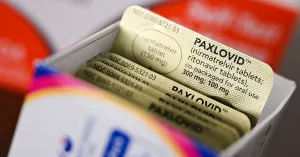


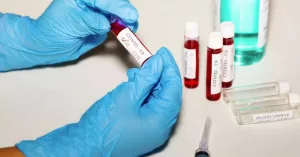
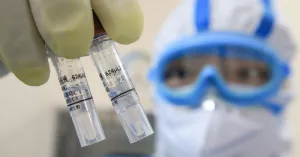
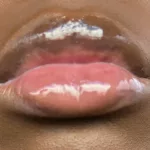









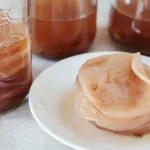



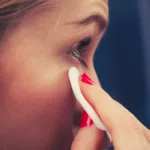
Leave a Reply
You must be logged in to post a comment.